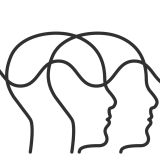In this article:
What is a Mental Health Counseling Degree?
A mental health counseling degree is a program that prepares students to help people manage and overcome emotional, psychological, and behavioral challenges. This degree focuses on teaching students how to assess mental health issues, provide counseling, and support individuals in improving their well-being. Students learn about different types of mental health disorders, therapeutic approaches, and how to build trusting relationships with clients.
The program typically includes both classroom instruction and hands-on experience. Students take courses in psychology, human development, counseling techniques, and ethics. They also complete supervised clinical hours where they practice counseling real clients under the guidance of licensed professionals. This practical experience is important for developing the skills needed to work effectively with diverse clients.
Program Options
Here are some program options for a mental health counseling degree:
- Bachelor’s Degree in Psychology or Counseling: A four-year undergraduate program that provides foundational knowledge in mental health, human behavior, and counseling theories. While not sufficient for licensure, it prepares students for entry-level roles in social services or for pursuing a master’s degree in mental health counseling.
- Master’s Degree in Mental Health Counseling: A two to three-year graduate program that is required for licensure as a mental health counselor. This program includes coursework in counseling techniques, mental health disorders, and ethics, along with supervised clinical experience.
- Doctoral Degree in Counseling Psychology or Counselor Education: A Ph.D. or Psy.D. program that typically takes 4-6 years. It is for those interested in advanced clinical practice, research, or teaching at the university level. This degree focuses on in-depth research, higher-level counseling skills, and often requires a dissertation.
- Graduate Certificate in Mental Health Counseling: A shorter program (usually one year) designed for professionals who already have a related degree (like in psychology or social work) and want to specialize in mental health counseling. It offers targeted courses and some practical experience.
Skills You’ll Learn
In a mental health counseling degree program, students acquire various essential skills that prepare them to support individuals facing emotional and psychological challenges. Here are some key skills learned:
- Counseling Techniques: Students learn various therapeutic methods and approaches, such as cognitive-behavioral therapy (CBT), solution-focused therapy, and motivational interviewing, enabling them to provide effective support tailored to clients’ needs.
- Active Listening: Developing the ability to listen attentively and empathetically to clients, which helps them feel understood and supported while sharing their thoughts and feelings.
- Assessment and Diagnosis: Gaining skills in evaluating clients’ mental health through interviews, standardized assessments, and observation to identify issues and develop appropriate treatment plans.
- Crisis Intervention: Learning how to respond effectively to clients in crisis situations, including assessing risk factors for harm and providing immediate support and resources.
- Cultural Competency: Understanding and respecting diverse backgrounds, values, and beliefs, which allows counselors to work effectively with clients from various cultural and socio-economic backgrounds.
- Communication Skills: Developing clear and effective verbal and written communication skills to articulate treatment plans, document progress, and interact with clients and other professionals.
- Ethical Decision-Making: Learning about ethical standards and legal requirements in counseling, including confidentiality, informed consent, and professional boundaries.
- Empathy and Compassion: Cultivating a genuine understanding and concern for clients’ experiences, helping to foster a trusting therapeutic relationship that encourages open communication.
What Can You Do with a Mental Health Counseling Degree?
A mental health counseling degree opens the door to various career opportunities focused on helping individuals cope with emotional, psychological, and behavioral challenges. Here are some potential career options:
- Mental Health Counselor: Provides counseling services to individuals, couples, and groups facing mental health issues such as anxiety, depression, and relationship problems. This role typically requires a master’s degree and licensure.
- Mental Health Social Worker: Works with clients in various settings to provide therapy, support, and resources for mental health issues. Clinical social workers often focus on connecting clients with community resources and services.
- Drug and Alcohol Counselor: Specializes in helping individuals struggling with addiction and substance use disorders. They provide counseling, support, and strategies for recovery and relapse prevention.
- School Counselor: Works in educational settings to help students deal with academic, social, and emotional challenges. School counselors support students’ mental health and help them navigate personal issues that may affect their education.
- Marriage and Family Therapist: Focuses on helping couples and families improve their relationships and resolve conflicts. This role requires specialized training in family dynamics and relationship counseling.
- Crisis Intervention Specialist: Provides immediate support to individuals in crisis situations, such as those experiencing suicidal thoughts or severe emotional distress. They assess needs, offer support, and connect clients to ongoing resources.

